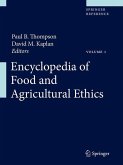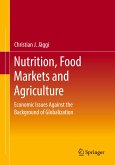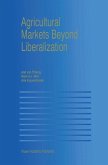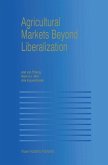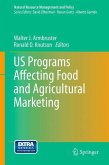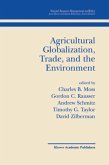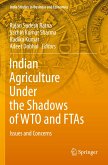This book offers a research-based, holistic overview of the entire value chain of the global food industry. It captures and defines over 80 contemporary 'megatrends' in agriculture and the food market that can be empirically documented and have a major impact on business, economies, industries, societies, and individuals.
Today the world is characterized by more uncertainty and unpredictability than in previous periods. In the midst of these changing times, the book demonstrates how a number of more stable trends still exist within global agriculture, which can be important indicators in both the short and long term. The book highlights how developments in agriculture, the food industry and food markets have a central position in policy debates around climate change, sustainability, food crises, hunger, and food supply, and shows how by identifying various megatrends and their underlying economic drivers, as well as potential disruptive forces, we can reduce both risk and vulnerability in the future. Megatrends within consumption, food loss, food crises, international trade, retail industry and ownership of farms are discussed and their relevance illuminated for a wide range of stakeholders, including policy-makers and agri-businesses, as well as farmers and consumers. This book will be a useful resource for researchers in agricultural and environmental economics, as well as policy-makers and professionals in agri-food organisations and public food institutions.
This is an open access book.
Today the world is characterized by more uncertainty and unpredictability than in previous periods. In the midst of these changing times, the book demonstrates how a number of more stable trends still exist within global agriculture, which can be important indicators in both the short and long term. The book highlights how developments in agriculture, the food industry and food markets have a central position in policy debates around climate change, sustainability, food crises, hunger, and food supply, and shows how by identifying various megatrends and their underlying economic drivers, as well as potential disruptive forces, we can reduce both risk and vulnerability in the future. Megatrends within consumption, food loss, food crises, international trade, retail industry and ownership of farms are discussed and their relevance illuminated for a wide range of stakeholders, including policy-makers and agri-businesses, as well as farmers and consumers. This book will be a useful resource for researchers in agricultural and environmental economics, as well as policy-makers and professionals in agri-food organisations and public food institutions.
This is an open access book.


